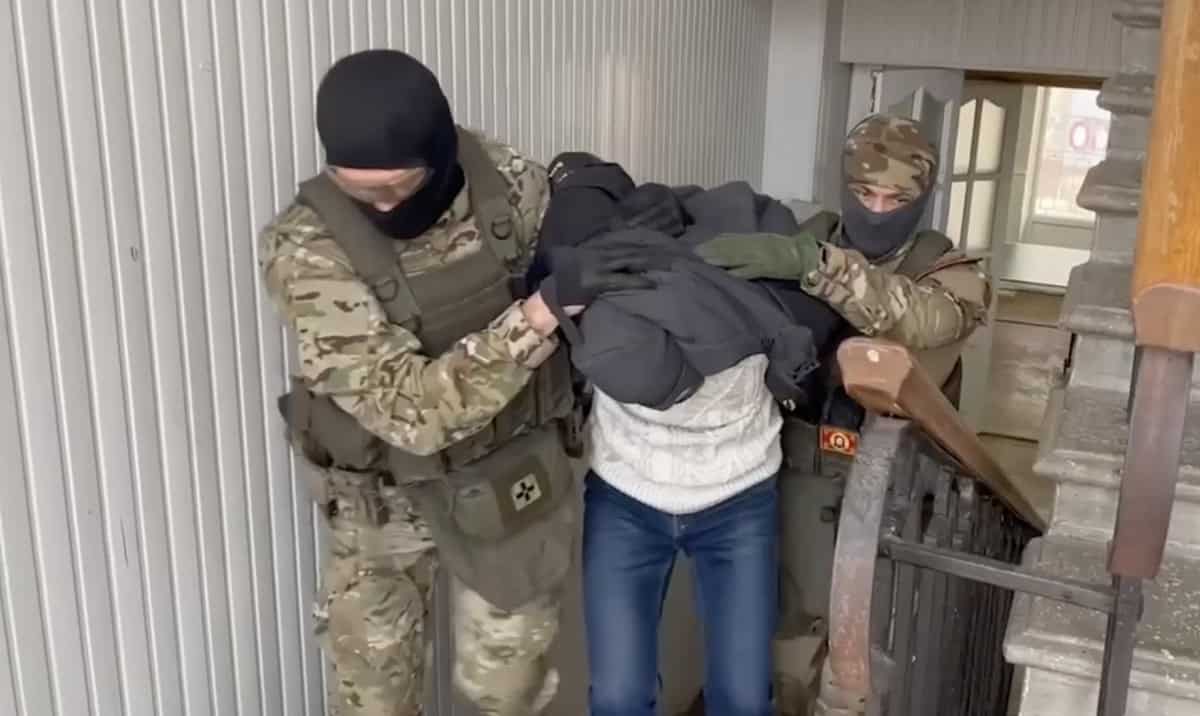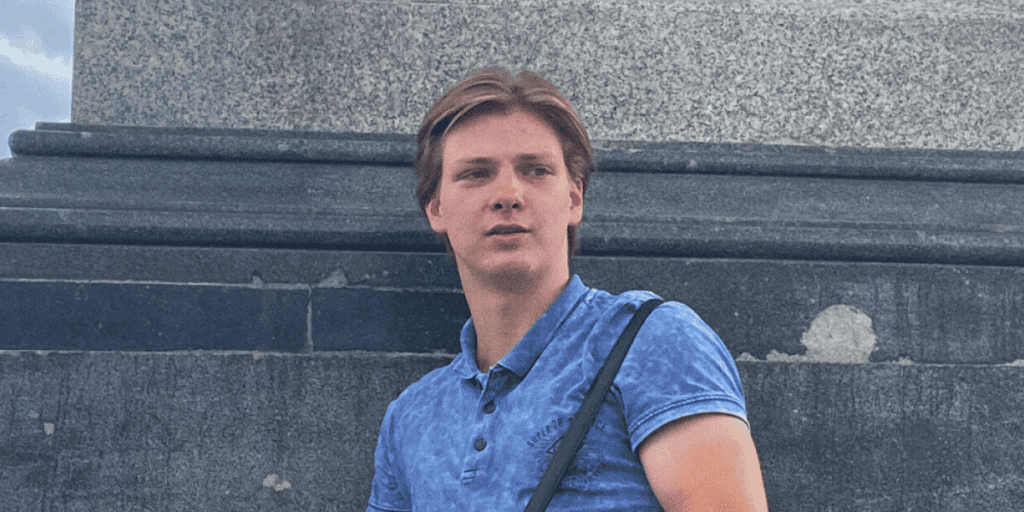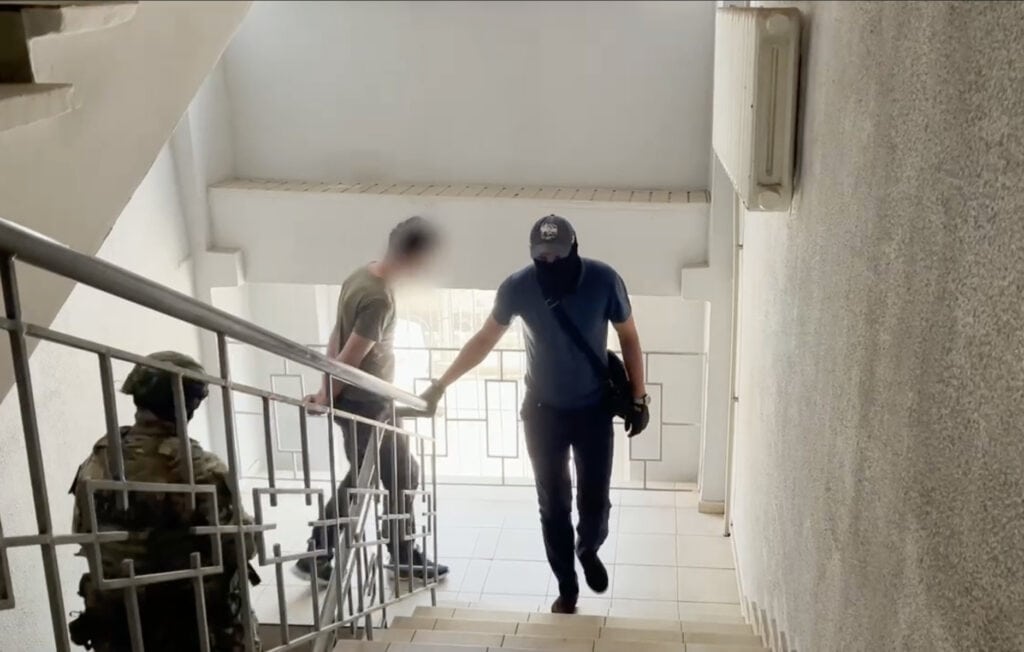

Russia is accusing increasingly more residents of the occupied territories of supporting the Ukrainian armed forces
To detain Ukrainians in the occupied territories and Russia, and then arrange pseudo-trials, Russia finds a variety of pretexts. One of them is accusations of supporting the Ukrainian armed forces. In recent months, there have been at least four cases of arrests of people suspected of financing the army, according to Novyny Donbasu.
Russia is accusing Ukrainians of helping the Ukrainian armed forces more and more often
On July 29, Rosgvardia announced the arrest of 25 people in Zaporizhzhia and Kherson regions. They allegedly “collected and passed on to the supervisors from the Armed Forces of Ukraine information about the actions of the Russian Ministry of Defence, Rosgvardia and the Russian Interior Ministry, as well as made public calls for terrorist activities. Among the persons concerned are members and sponsors of banned organisations.” The fact that these accusations are groundless is evidenced at least by the phrase “public calls,” as no one under the occupation risks openly demonstrating their disagreement with Russia’s policy.
Residents of all occupied regions face accusations of financing the Ukrainian army. Recently, the Investigative Committee of the “Luhansk republic” clique published a video of the arrest of a Luhansk resident. He had allegedly transferred money to the Azov regiment. In the short video, the man confesses to this. This is likely to have been done under duress.
At the end of May, the “republic’s” media also reported the arrest of a Luhansk resident who allegedly provided financial support to Azov. A video of the arrest was published online. Security forces stopped a car, pulled the man out of it, tied his hands and took him to the Investigative Committee. Z-channels reported that the Luhansk resident was accused of allegedly making at least eight transfers to Azov through the TikTok platform between February and November 2023. It is not known at what stage of the trial and what term the man will be charged with, but in such cases, Russia often does not skimp on years in prison.
This is what happened to Danyl Yefimov, a native of Snizhne, Donetsk region, who was sentenced to 12 years in a maximum security prison. His story is also noteworthy because he is just 19 years old.

Danyl Efimov. Photo: First Department
At the end of December 2023, Yefimov and his family were planning to travel to Turkey. At the Volgograd airport, the boy showed the border guards his Ukrainian passport; he did not have a Russian document, which led to interrogation. Yefimov’s phone was taken away – this is a common procedure during the filtration process. Border guards found several transfers of 13,000 rubles to Sergey Prytula’s charity fund in the Ukrainian bank app. However, the Ukrainian was initially detained not for this, but for allegedly using profane language, and then for hooliganism in the city centre.
After that, Danyl Yefimov was beaten right in the police office by masked men. They demanded that he sign a confession. The Ukrainian refused and was arrested on suspicion of high treason for transferring money to the Prytula Foundation. The young man was taken to a detention centre in Rostov-on-Don, where he agreed to testify.
The actual number of detainees is unknown
The ZMINA Human Rights Centre says that there are more than 250 cases of Ukrainians under occupation being detained for allegedly financing the armed forces of Ukraine or otherwise supporting the army. At the same time, these statistics cannot be called comprehensive, as Russian data is not available to human rights activists.
“We monitor open sources. These are people against whom criminal proceedings have been opened, some of whom have already been sentenced and are serving their sentences. The problem is also to find out where they are serving their sentences. Even Russian lawyers often cannot find the place,” Yelyzaveta Sokurenko, head of the war crimes documentation department at the ZMINA Human Rights Centre, commented.

Human rights activists are aware of more than 250 cases of detention of Ukrainians under the occupation for supporting the Ukrainian armed forces. Screenshot from a video clip by the Russian Investigative Committee
Andriy Yakovlev, an expert at the Media Initiative for Human Rights, says such processes occur with a certain regularity under the occupation. This suggests that Russia is trying to control the resistance and is looking for any signs that could be perceived as participation in the activities of the Ukrainian armed forces. Moreover, the human rights activist emphasises that international humanitarian law generally allows occupation administrations to apply their criminal law in dangerous situations.
“If it is confirmed that there are some reasonable grounds and evidence that this really threatened the occupation administration – for example, sabotage, subversion – then under international law they can investigate. No matter how painful it is for us to hear. This is a global practice. The other thing is that the Russian Federation never applies the legal procedures provided for by international law,” Andrey Yakovlev said.
According to international humanitarian law, an occupation administration must ensure both the defence of an accused – that is, provide a lawyer – and a continual review of his case.
“If the detention is carried out on security grounds, it is necessary to trace over time whether this danger remains. If the danger has disappeared, the grounds for detention also disappear. But the Russian Federation does not do this. Detainees are not allowed to see their lawyers, they have no rights and it is not even clear whether they are alive or not. Any accusation must always be verified through competition procedures. But the Russian Federation detains and deprives people of any rights. This makes these processes illegal. People are tortured, they have no real opportunity to refute the accusations, they have no defence, they cannot call their witnesses,” Andriy Yakovlev commented.
Most often, after detention, people are transported to Russia. In the occupied territories, mostly only courts of first instance are held. The same applies to serving a prison term. According to Yelyzaveta Sokurenko, Ukrainians are mostly held in Russian penal colonies.